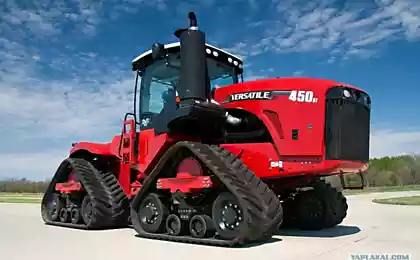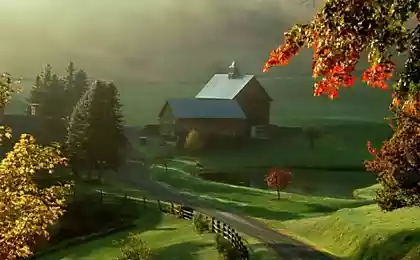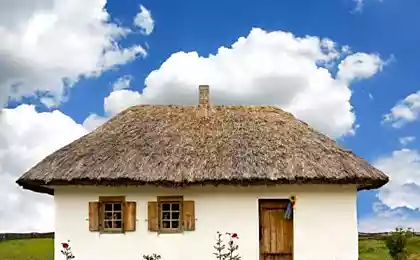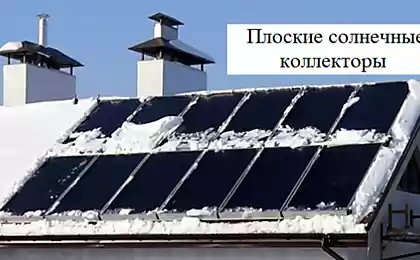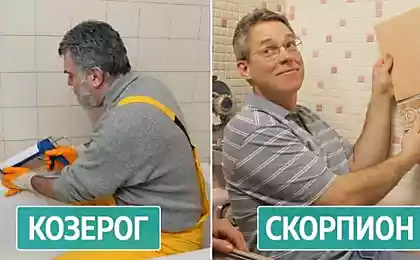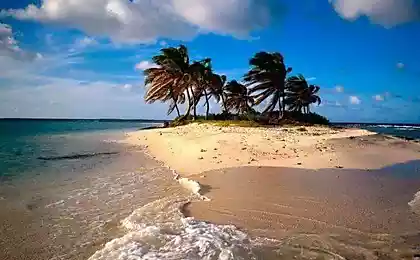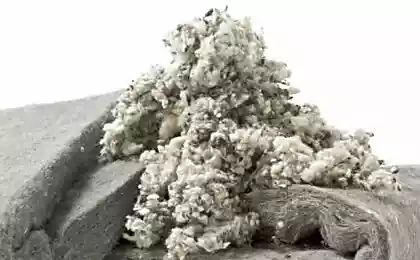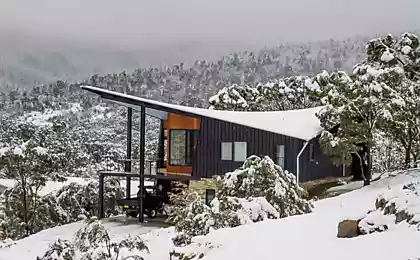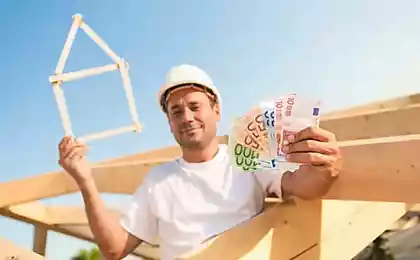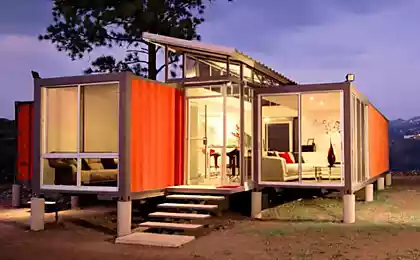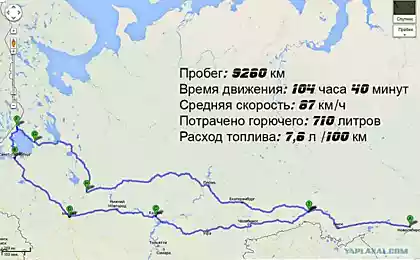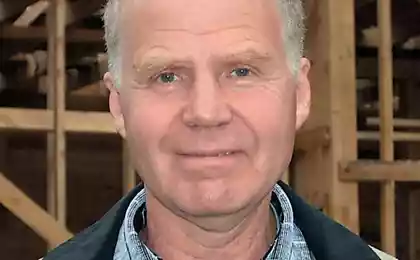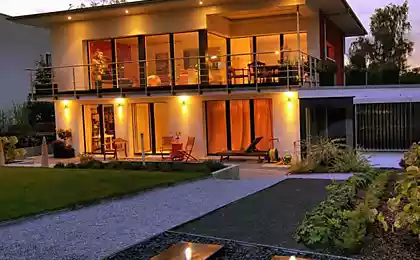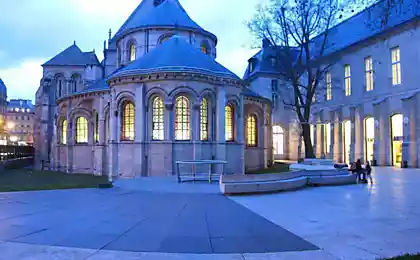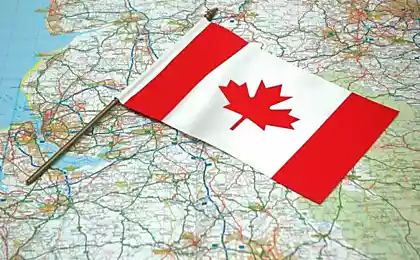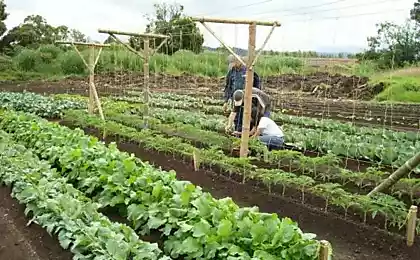339
Watched how in Canada insulate houses, a breakthrough in construction technology
If you are wondering how to insulate the walls of the house, you will find several options. You can insulate the house from the outside or from the inside. Today's edition. "Site" It will tell you what materials are the easiest to insulate a residential building. Houses are insulated both outside and inside the living room.
Insulation is different, they have pros and cons and have their own characteristics of operation. The house can be insulated with mineral wool, foam, ecowool, glassy, basalt wool or polystyrene foam. The most important characteristics that you need to pay attention to when choosing an insulation is thermal conductivity, combustibility, vapor permeability, environmental friendliness, density and water absorption coefficient.
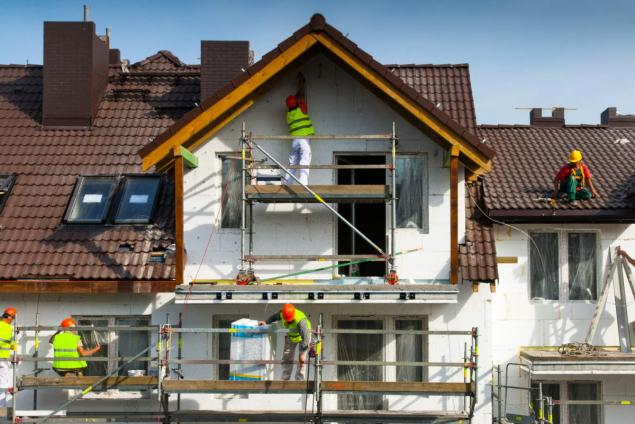
Than to insulate the walls of the house Mineral wool The most popular insulation is mineral wool. It has a number of advantages. Mineral wool does not burn, does not contain toxic substances, does not deform and passes steam well. Mineral wool also has sound-insulating properties. There are three types of mineral wool: stone, glass wool and slag.
A dense material that lasts for years is stone wool, which is much safer than glass wool. But stone wool is expensive. Now make a safe glass wool, which can insulate any building inside and outside. It also weighs little and is easily mounted. Work with mineral wool should be in a respirator, glasses and gloves, as small particles of glass wool can get into the air.
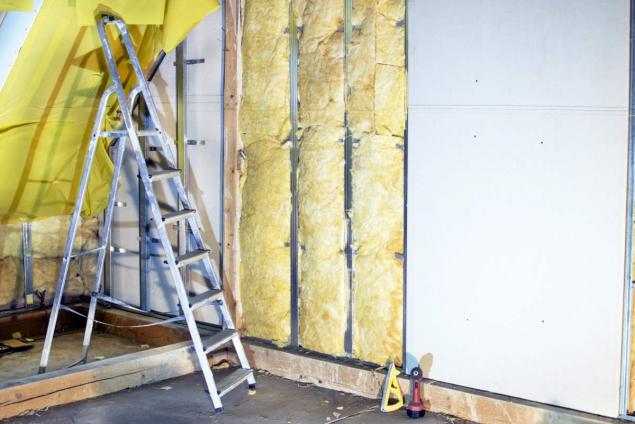
Styrofoam, or Styrofoam, is good because it is cheap and lightweight. Insulation is released in the form of plates and granules. Styrofoam is easy to install, and not all, but some brands have low combustibility, so you need to be careful in this matter. In this case, the foam can be combustible and emit toxic substances, and sometimes contain flame retardants. In appearance, there are no differences, so the foam is used as an external insulation.
Styrofoam does not pass water vapor, and when installed, foam boards are easily damaged. Extruded polystyrene foam does not burn, does not absorb moisture and is more durable in itself. Such a foam can insulate the basement and foundation of the house.
456268
Usually before finishing works insulate the house from the outside, but it happens that you have to insulate the balcony and walls in an old multi-storey house or in a private much later. External insulation is good because the insulated walls do not freeze and do not allow condensation into the room.

The service life of the house is significantly increased in the presence of an external insulation, as the walls of houses are exposed to different temperatures at different times of the year. Because of this, without insulation walls are deformed. If you insulate the walls outside, you can not spend money on internal heating, warm floor or additional heaters.
Compared to the internal insulation of the house, the external is more expensive, and this is a significant disadvantage. In addition, external insulation is performed only under favorable weather conditions and with special equipment, so often it is not possible to insulate yourself, you will have to call the appropriate service.

If only specialists can insulate the house from the outside, then special tools and expensive equipment are not required inside. You can also save on insulation materials, as they are much cheaper than external insulation.
And yet the internal insulation loses to the external. Yes, it can be carried out at any time of the year, and will cost insulation cheaper. In addition to the fact that the insulation inside the house reduces space, there are a lot of nuances when insulating in this way, which will have to be tolerated.

Condensation is one of a number of inconveniences that an internal insulation delivers. Since the internal insulation is placed between the finishing material and the wall, in the cold season the wall cools and condenses moisture inside the room. Because of this, mold and fungus may appear. Also, with internal insulation, the ventilation will cool the insulation every time and the house will still be cold. You will have to get electric heaters.

Interestingly, in cold Canada, houses are built frame, and accordingly, very cold. True, frame houses are insulated with mineral wool, but in such harsh climatic conditions this is not enough. So you have to insulate the houses from the inside out.
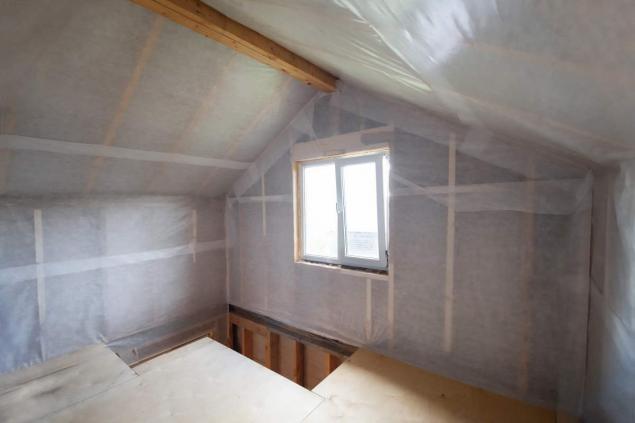
In order not to wise and not to play with wiring for a long time, builders stuff wooden bars 2 cm thick on a wooden frame. Reinforced foil cardboard is stuffed on top. So the house turns into a thermos and has double thermal insulation. But this design is not perfect. And which insulation do you think is the most reliable?
Insulation is different, they have pros and cons and have their own characteristics of operation. The house can be insulated with mineral wool, foam, ecowool, glassy, basalt wool or polystyrene foam. The most important characteristics that you need to pay attention to when choosing an insulation is thermal conductivity, combustibility, vapor permeability, environmental friendliness, density and water absorption coefficient.

Than to insulate the walls of the house Mineral wool The most popular insulation is mineral wool. It has a number of advantages. Mineral wool does not burn, does not contain toxic substances, does not deform and passes steam well. Mineral wool also has sound-insulating properties. There are three types of mineral wool: stone, glass wool and slag.
A dense material that lasts for years is stone wool, which is much safer than glass wool. But stone wool is expensive. Now make a safe glass wool, which can insulate any building inside and outside. It also weighs little and is easily mounted. Work with mineral wool should be in a respirator, glasses and gloves, as small particles of glass wool can get into the air.

Styrofoam, or Styrofoam, is good because it is cheap and lightweight. Insulation is released in the form of plates and granules. Styrofoam is easy to install, and not all, but some brands have low combustibility, so you need to be careful in this matter. In this case, the foam can be combustible and emit toxic substances, and sometimes contain flame retardants. In appearance, there are no differences, so the foam is used as an external insulation.
Styrofoam does not pass water vapor, and when installed, foam boards are easily damaged. Extruded polystyrene foam does not burn, does not absorb moisture and is more durable in itself. Such a foam can insulate the basement and foundation of the house.
456268
Usually before finishing works insulate the house from the outside, but it happens that you have to insulate the balcony and walls in an old multi-storey house or in a private much later. External insulation is good because the insulated walls do not freeze and do not allow condensation into the room.

The service life of the house is significantly increased in the presence of an external insulation, as the walls of houses are exposed to different temperatures at different times of the year. Because of this, without insulation walls are deformed. If you insulate the walls outside, you can not spend money on internal heating, warm floor or additional heaters.
Compared to the internal insulation of the house, the external is more expensive, and this is a significant disadvantage. In addition, external insulation is performed only under favorable weather conditions and with special equipment, so often it is not possible to insulate yourself, you will have to call the appropriate service.

If only specialists can insulate the house from the outside, then special tools and expensive equipment are not required inside. You can also save on insulation materials, as they are much cheaper than external insulation.
And yet the internal insulation loses to the external. Yes, it can be carried out at any time of the year, and will cost insulation cheaper. In addition to the fact that the insulation inside the house reduces space, there are a lot of nuances when insulating in this way, which will have to be tolerated.

Condensation is one of a number of inconveniences that an internal insulation delivers. Since the internal insulation is placed between the finishing material and the wall, in the cold season the wall cools and condenses moisture inside the room. Because of this, mold and fungus may appear. Also, with internal insulation, the ventilation will cool the insulation every time and the house will still be cold. You will have to get electric heaters.

Interestingly, in cold Canada, houses are built frame, and accordingly, very cold. True, frame houses are insulated with mineral wool, but in such harsh climatic conditions this is not enough. So you have to insulate the houses from the inside out.

In order not to wise and not to play with wiring for a long time, builders stuff wooden bars 2 cm thick on a wooden frame. Reinforced foil cardboard is stuffed on top. So the house turns into a thermos and has double thermal insulation. But this design is not perfect. And which insulation do you think is the most reliable?
I am planning a rich harvest of currants in the coming year, because I water the bushes in October with a special mixture.
Why not put raw onions in minced patties
